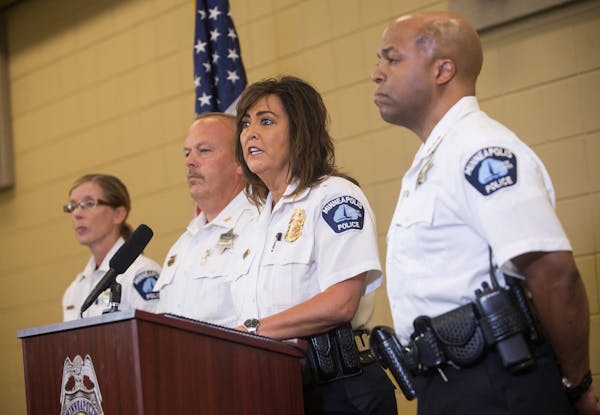About the "fast-track" program from which Minneapolis police officer Mohamed Noor graduated (front page, July 23), I'd like to offer my professional opinion and provide a historical perspective regarding the effort's origination.
In 2000, the State Patrol division of the Minnesota Department of Public Safety applied for funding through the U.S. Department of Justice Police Corps Program. I was the author of the funding request and the director of the program. Minneapolis had a stake in the origination of the Police Corps Program by providing a full-time training member to our staff.
The successful application brought what the Star Tribune has labeled "fast-track" training to Minnesota. The program was designed to increase the training and education of police officers; was open to any agency wishing to use it for hire; and was meant to provide an avenue for the recruitment of highly educated individuals, increase the pool of police candidates, and create partnerships between police agencies and stakeholders, including the community. Police Corps was a highly successful police training program in many ways. Make no mistake: It was stringent, highly structured and rigorous — academically, mentally and physically.
In 2006, the federal funding stream for Police Corps was moved to competing priorities. The Minnesota Department of Public Safety, because of the success of the program, chose to continue with state funding, and the State Patrol adopted it for its own use. Other agencies — including the Minneapolis Police Department — adopted the concept as well, creating their own similar programs.
It is yet to be determined whether officer Noor's training failed him. If he wasn't trained well, it is not the result of the "fast-track" training. The concept and purpose of that training was, and is, solid, and the benefits to the community are well-documented.
When training fails, it is the result of political interference, rapid hire, poor choice of instructors, watered-down field programs, traditional practices over traditional values and the list goes on. Police training is an art. Serious, focused attention, supervision and expertise must be devoted to the entire hiring and training process. Training begins with recruitment of talent and extends to the background investigative process, the psychological and fitness examinations, and thorough academic and academy testing, field training and probationary evaluation. I was fortunate to work for an agency that takes its training seriously.
And then there's the other reason officers fail. They are human, and no matter the training and effort put into them, humans will make mistakes. All the details aren't sufficiently outlined and clarified regarding officer Noor, but if he made a poor decision, it may be that he alone is responsible for his actions.
Lori Hodapp, of New Prague, is a former training director for the Minnesota State Patrol and is serving with the Minneapolis Airport Police.
How 'the Squad' and like-minded progressives have changed their party
Protect kids online


